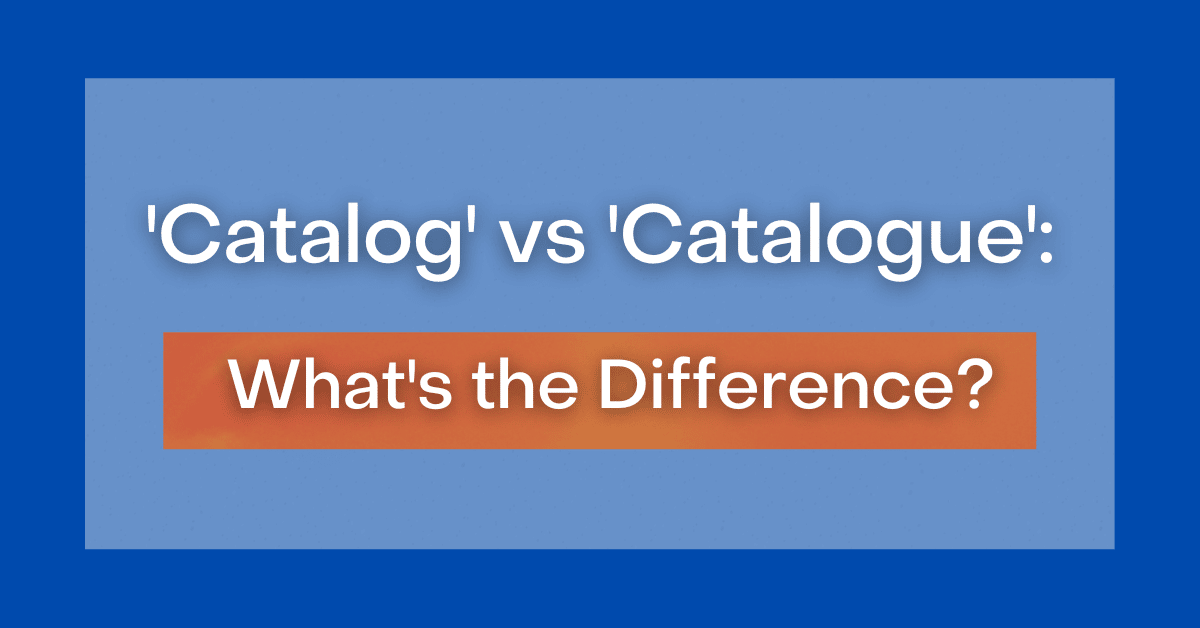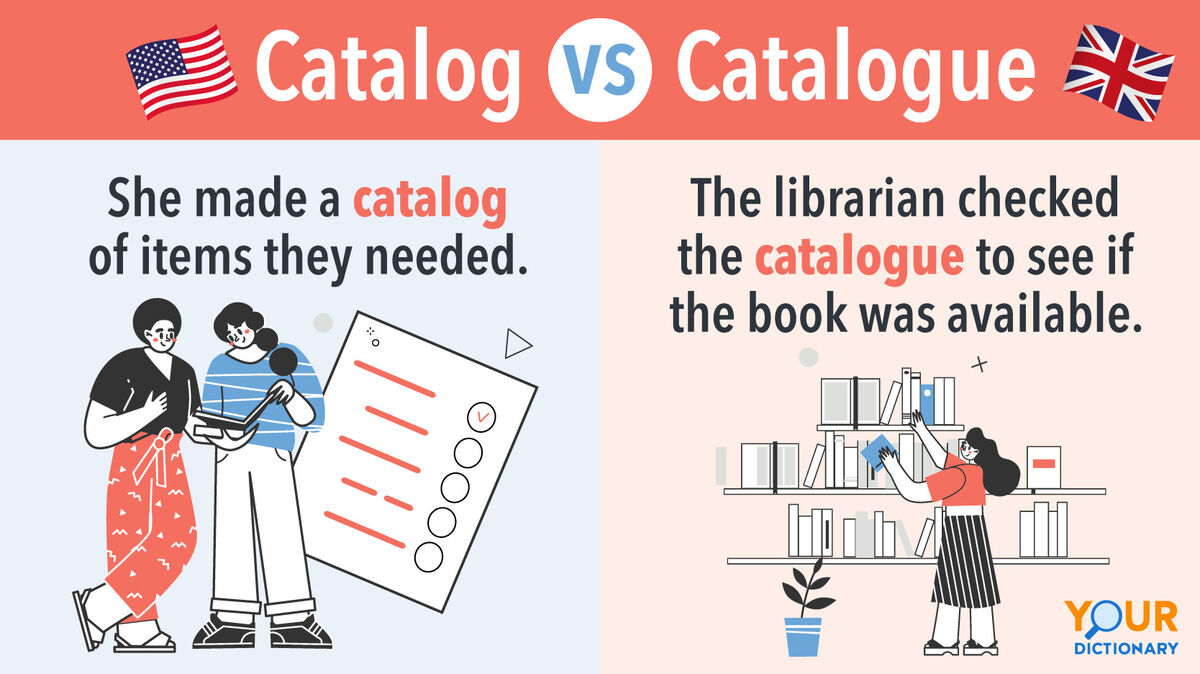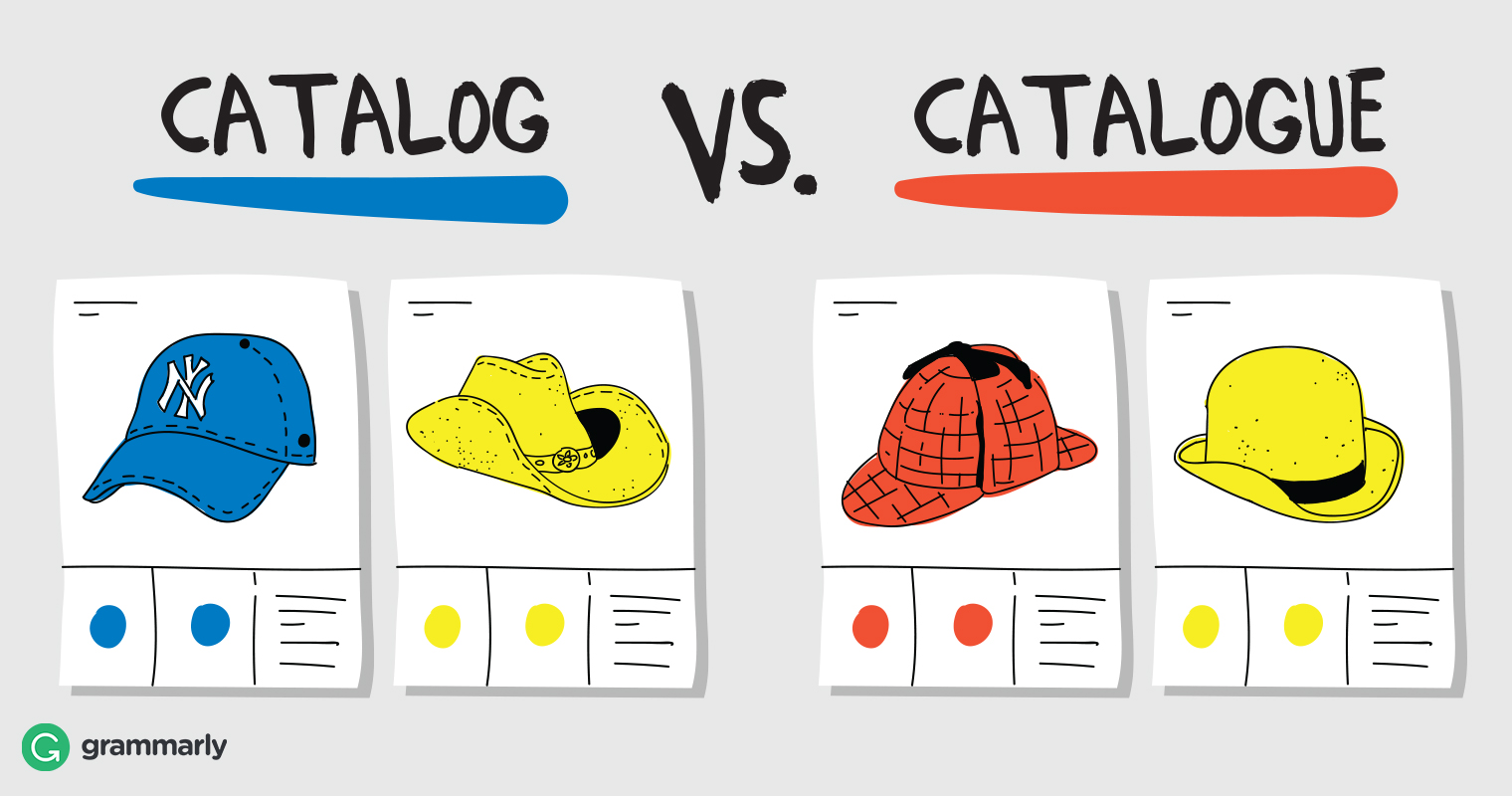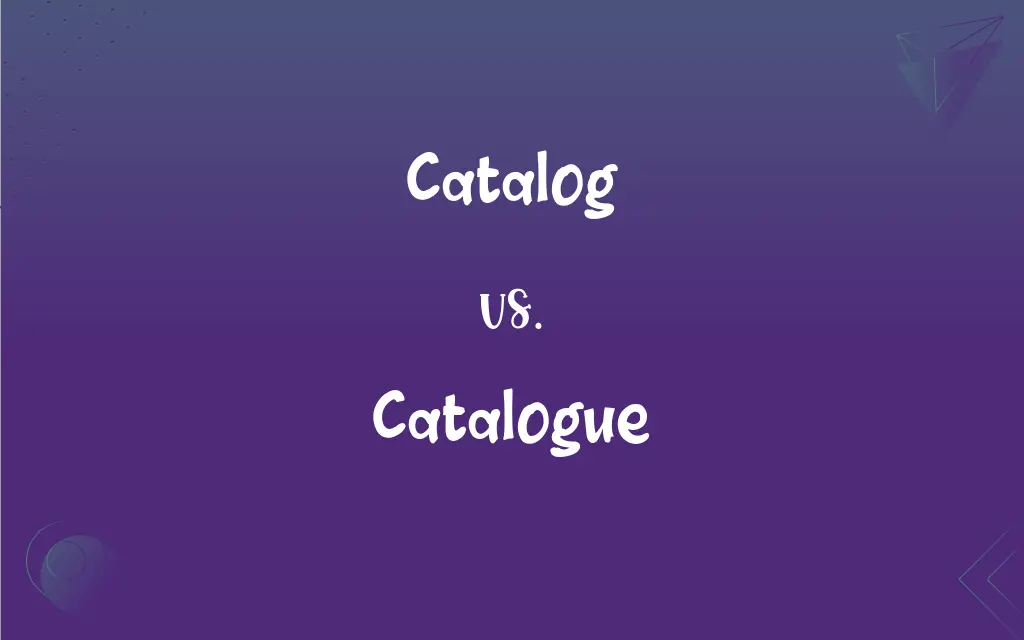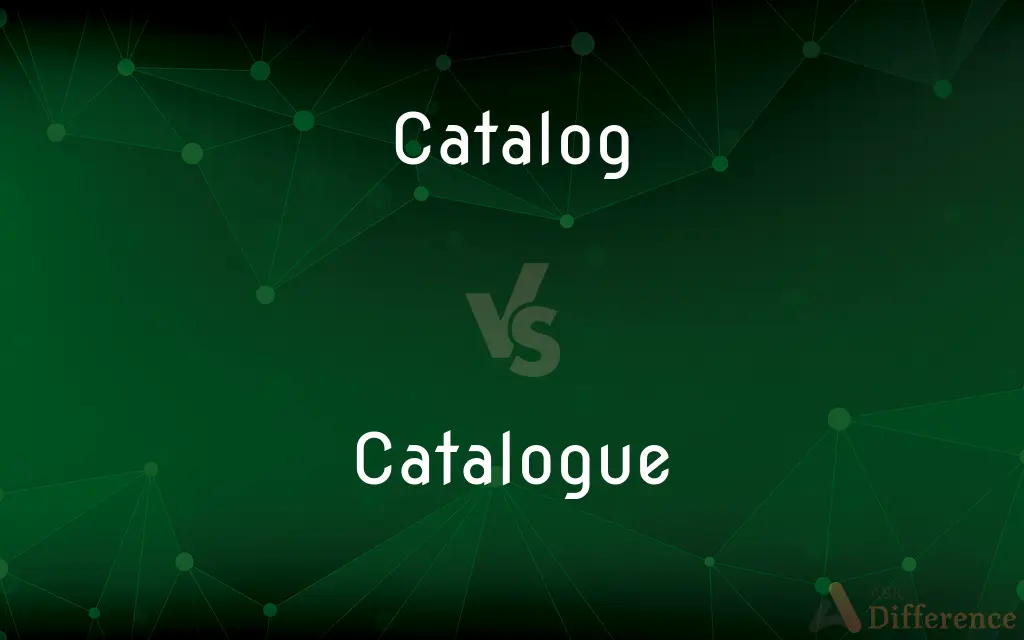What's The Difference Between Catalog And Catalogue
What's The Difference Between Catalog And Catalogue - Cataloguing refers to the methodical. I will also discuss a useful memory tool to help you decide whether to use catalog or catalogue when you write. To decide between catalog and catalogue, consider the audience’s location. Catalogue.i will provide example sentences for each spelling to illustrate when it’s appropriate to use one over the other. What is the difference between a catalog and a catalogue? What’s the difference between them? For american readers, use catalog. for british or international audiences, catalogue is the preferred form. Catalogue is a alternative form of catalog. Catalogue, on the other hand, is preferred in british english, which means a systematically arranged list of items or. Catalog is the preferred spelling in american english; A catalog is a comprehensive list or inventory, usually of items for sale or services offered, such as books, music, clothing, or furniture. In general, catalog is the preferred spelling in. (1) eight bibliographic control elements are defined, and the criteria for evaluating the occurrence of these elements. Cataloguing is the process of listing items systematically, often for a collection or library, while a catalogue is the list or database itself. The simple answer is that both catalog and catalogue are correct. For american readers, use catalog. for british or international audiences, catalogue is the preferred form. Catalog is more popular in american english, while catalogue is more widely used in british english. To decide between catalog and catalogue, consider the audience’s location. In summary, both “catalogue” and “catalog” refer to the same concept—a systematic list or record of items—but their usage depends on the regional spelling. Cataloguing refers to the methodical. Catalogue is a alternative form of catalog. Catalog and catalogue mean a list or record of items. For american readers, use catalog. for british or international audiences, catalogue is the preferred form. Catalogue, on the other hand, is preferred in british english, which means a systematically arranged list of items or. Catalogue.i will provide example sentences for each spelling to. The primary difference lies in regional usage: Catalog is american english, while catalogue is british english. To decide between catalog and catalogue, consider the audience’s location. What's the difference between catalog and catalogue? Catalogue, on the other hand, is preferred in british english, which means a systematically arranged list of items or. Catalog is more popular in american english, while catalogue is more widely used in british english. The simple answer is that both catalog and catalogue are correct. Catalog and catalogue are both acceptable spellings for the same thing. A catalog is a comprehensive list or inventory, usually of items for sale or services offered, such as books, music, clothing, or. The simple answer is that both catalog and catalogue are correct. Is that catalog is an alternative spelling of lang=en while catalogue is to put into a catalogue. Catalog is the preferred spelling in american english; In this article, i will compare catalog vs. Catalog and catalogue mean a list or record of items. Catalog is the preferred spelling in american english; Is that catalog is an alternative spelling of lang=en while catalogue is to put into a catalogue. Catalog and catalogue are both acceptable spellings for the same thing. Catalog is more popular in american english, while catalogue is more widely used in british english. Catalog and catalogue mean a list or record. What's the difference between catalog and catalogue? To decide between catalog and catalogue, consider the audience’s location. A catalog is a comprehensive list or inventory, usually of items for sale or services offered, such as books, music, clothing, or furniture. Cataloguing refers to the methodical. Catalog and catalogue mean a list or record of items. What is the difference between a catalog and a catalogue? To decide between catalog and catalogue, consider the audience’s location. Catalog and catalogue are both acceptable spellings for the same thing. Catalog is american english, while catalogue is british english. In general, catalog is the preferred spelling in. What's the difference between catalog and catalogue? The primary difference lies in regional usage: Catalogue, on the other hand, is preferred in british english, which means a systematically arranged list of items or. What’s the difference between them? I will also discuss a useful memory tool to help you decide whether to use catalog or catalogue when you write. In general, catalog is the preferred spelling in. (1) eight bibliographic control elements are defined, and the criteria for evaluating the occurrence of these elements. Cataloguing is the process of listing items systematically, often for a collection or library, while a catalogue is the list or database itself. Catalog is more popular in american english, while catalogue is more widely. To decide between catalog and catalogue, consider the audience’s location. Catalogue is a alternative form of catalog. The simple answer is that both catalog and catalogue are correct. Is that catalog is an alternative spelling of lang=en while catalogue is to put into a catalogue. In general, catalog is the preferred spelling in. The primary difference lies in regional usage: I will also discuss a useful memory tool to help you decide whether to use catalog or catalogue when you write. Cataloguing refers to the methodical. What’s the difference between them? Catalogue is a alternative form of catalog. What's the difference between catalog and catalogue? In general, catalog is the preferred spelling in. Catalog and catalogue mean a list or record of items. To decide between catalog and catalogue, consider the audience’s location. (1) eight bibliographic control elements are defined, and the criteria for evaluating the occurrence of these elements. In this article, i will compare catalog vs. In summary, both “catalogue” and “catalog” refer to the same concept—a systematic list or record of items—but their usage depends on the regional spelling. Catalog is the preferred spelling in american english; Cataloguing is the process of listing items systematically, often for a collection or library, while a catalogue is the list or database itself. A catalog is a comprehensive list or inventory, usually of items for sale or services offered, such as books, music, clothing, or furniture. The simple answer is that both catalog and catalogue are correct.🆚What is the difference between "catalog" and "catalogue" ? "catalog
The Key Differences between a Brochure and Catalogue!
‘Catalog’ vs ‘Catalogue’ What’s the Difference?
Catalog vs. Catalogue What's the Difference? ESLBUZZ
‘Catalog' vs 'Catalogue' What's the Difference?
Catalog vs. Catalogue Understanding the Differences in Spelling • 7ESL
Catalog vs. Catalogue Sorting Out the Different Spellings YourDictionary
Catalog or Catalogue—Which Should You Use? Grammarly
Catalog vs. Catalogue What’s the Difference?
Catalog vs. Catalogue — What’s the Difference?
Catalogue.i Will Provide Example Sentences For Each Spelling To Illustrate When It’s Appropriate To Use One Over The Other.
Catalog Is More Popular In American English, While Catalogue Is More Widely Used In British English.
Catalog Is American English, While Catalogue Is British English.
Catalogue, On The Other Hand, Is Preferred In British English, Which Means A Systematically Arranged List Of Items Or.
Related Post:



